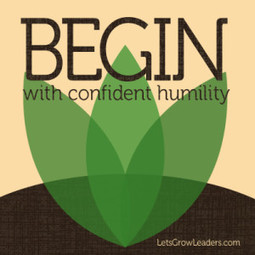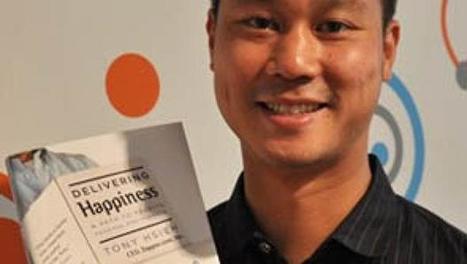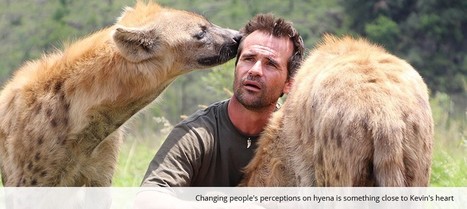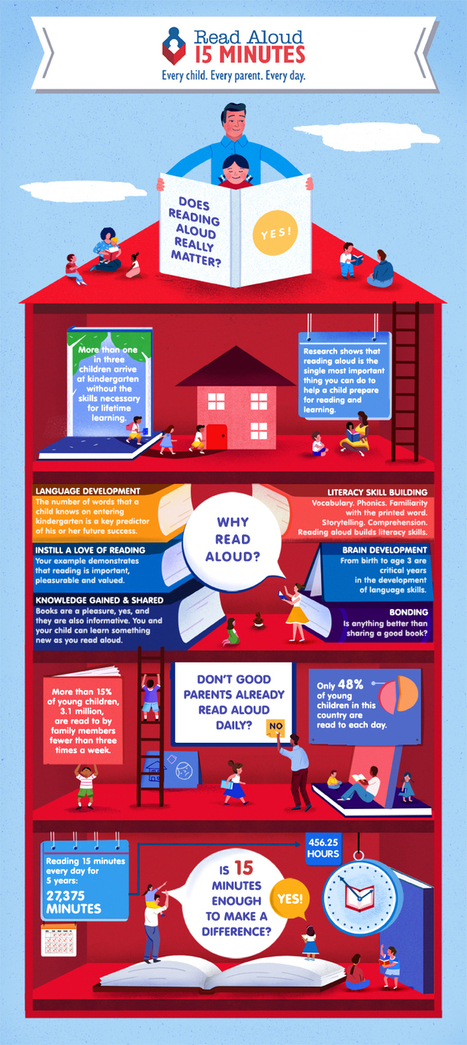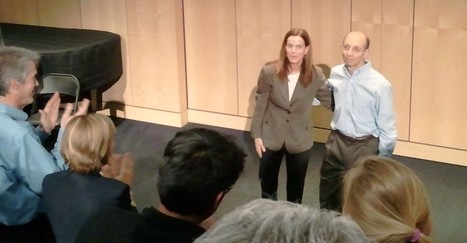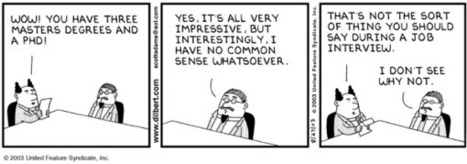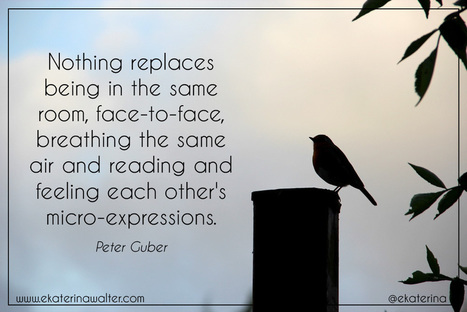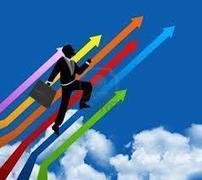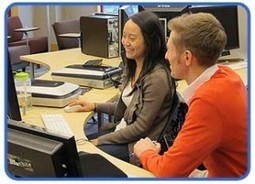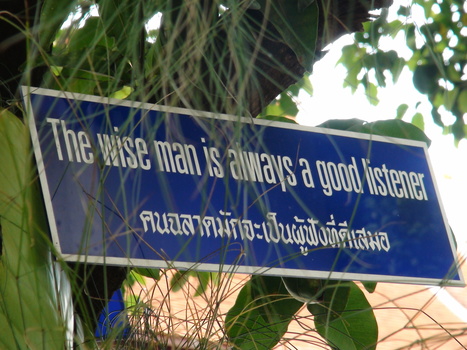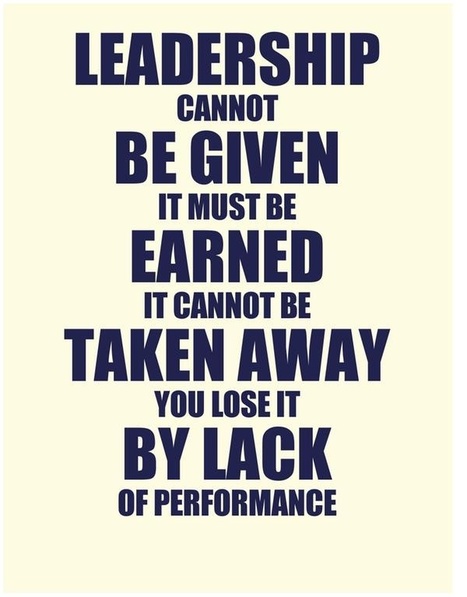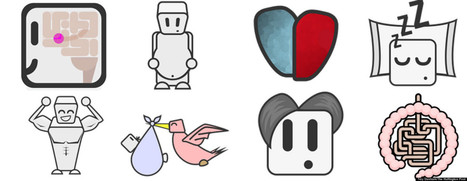Mirabai Bush, co-founder of The Center for Contemplative Mind in Society and a key adviser to Google's Search Inside Yourself curriculum, hosts a free, month...
Get Started for FREE
Sign up with Facebook Sign up with X
I don't have a Facebook or a X account

 Your new post is loading... Your new post is loading...
 Your new post is loading... Your new post is loading...

Annette Schmeling's curator insight,
April 13, 2013 11:25 AM
Humility means letting go of self-glorification. There is no effort to build up ego, impress people or compete with others for status. When your intentions are honorable you are able to create value without fanfare.

ozziegontang's curator insight,
March 4, 2014 4:44 PM
Read Annette's insights. ozzie Mindfulness.com 
ozziegontang's curator insight,
March 4, 2014 4:45 PM
Read Annette's insights. And start with anyone of Lee Thayer's books. 
ozziegontang's curator insight,
March 4, 2014 4:45 PM
Read Annette's insights. And start with anyone of Lee Thayer's books.

Annette Schmeling's curator insight,
February 5, 2014 9:34 AM
'Happiness' itself is not a core value at Zappos, but the organizational alignment with core values is so powerful that you cannot miss the end result. Zappos core values center on customer service and connect the employees as human beings. The values are timeless and do not change - the practices and strategies of business should change all of the time.
Beth Dichter's curator insight,
November 22, 2013 7:45 PM
How important it is to read aloud to young ones 15 minutes per day? To get the answer to this question explore the infographic published by ReadAloud, a non -profit organization. Although geared to parents this infographic would be great for teachers to see (and refer to in parent meetings). Perhaps it comes as no surprise that "reading aloud is the single most important thing a parent or caregiver can do to improve a child’s readiness to read and learn" according to this infographic. 
Sirenetta Leoni's curator insight,
November 23, 2013 6:40 PM
All voice actors should be reading aloud for 15 minutes daily for practice anyway, so if you're not doing this already with your kids, you really need to make the time to do it. It also happens to be a great way to test out and practice dialects and characters; your kids are usually more forgiving than the reviewers on Audible and Amazon. If your grandchildren, nieces or nephews live far away, there's no reason why you can't Skype-read to them...or spend 15 minutes daily recording a book that you can send them when it's completed. And if you don't have kids in your life, your local library or school would probably love to have a professional voice actor come in and read to students. Here are tips from the SAG Foundations BookPals for reading aloud: http://bookpals.net/ten-tips-for-reading-aloud/ ...and they all lived happily ever after! 
Jan Watts's curator insight,
November 26, 2013 5:09 PM
We know this, but it bears repeating, and repeating and repeating!!!!

Annette Schmeling's curator insight,
November 18, 2013 11:49 PM
I would add my appreciation for Argyris' practical application and the focus on learning opportunities. Double-Loop Learning, Ladder of Inference, Espoused vs Lived experience and the balance between Inquiry and Advocacy are concepts that are regularly used in the practice on Contemplative Dialogue.

ozziegontang's curator insight,
July 31, 2013 11:40 PM
Storytelling at its best. If you want a great curated topic Visit Karen Dietz's #Just-story-it on Scoop.it. Thanks to former Vistage Chair Jen Sertl. She continues to be at the forefront of being a leader of leaders.

Trish Sadar's curator insight,
August 17, 2013 10:40 AM
Excellent article on building a team; however, still applies during the interview process!
I believe that interviewers are not lonly seeking for intelligence, competenc, skills, and experience. They are also seeking individuals with interpersonal skills who will complement the team.
Make it a great day!

ozziegontang's curator insight,
July 20, 2013 8:16 AM
We are interdependent. We are herd/pack animals euphemistically calling ourselves social animals. It is with the help of others tht we reach our greatness. That Greatness Zone lays in what Suzanne Livingston calls: My unique contribution. For me that is my passion around servant-leadership and building community. Cindy shares well how the work as a fellow Vistage/TEC Chair has allowed me to fulfill my passion for the past 27 years. Cindy talks about being good at what she did. She also mentions "I found I became bored easily" When I can do something well and it becomes habit, I can coast. And you know what they say about coasting. When you're coasting you're going downhill. The challenge that Lee Thayer throws down is: How will I be better tomorrow that I was today in living my life and performing better than I was today personally and professionally? Cindy has found her unique contribution that challenges her daily to be better than yesterday. Remember, I cannot motivate another person. Motivation comes from within. Motivation: the state or condition of being motivated. Motivate: Providing motive. Motive: Goals or objectives of one's actions.Random House Dictionary You may be able to inspire me, however it is up to me to achieve the "goals or objectives my one's actions." |

Annette Schmeling's curator insight,
March 6, 2014 11:01 AM
Otto Scharmer provides a strategy to to be free of personal preferences, superfluous attachments, and preformed opinions. Effective leaders, argues Scharmer, have the interior disposition and interior freedom necessary to access intention and see the emerging whole. P.S. Scharmer would have made a great Jesuit!

Barbara Ganley's curator insight,
February 28, 2014 9:44 AM
Amazing how obvious it all is... ;-) (What has happened to our common sense?!) 
Marianne Hart's curator insight,
February 28, 2014 3:24 PM
Sometimes the best PLN is right next door, just down the hall, or in your building!!

Rich Maxwell's curator insight,
February 10, 2014 9:53 AM
Leadership is largely about developing your people, setting a vision, and supporting them in making it happen. But are you hindering that success by not setting clear expectations, not considering organizational capacity when rolling out a new initiative, or setting policies and procedures that aren't useful? Leaders clear the way, they don't stand in the way. 
ozziegontang's curator insight,
February 21, 2014 5:23 PM
The story of Ralph Stayer is interesting in getting out of one's own way. What is more interesting is that his mentor early on was Lee Thayer who asked the questions that needed to be asked. Lee Thayer reminded me numerous times:
And BOLDED as a reminder:
The Mother of all tools is how I think about what needs thinking about. It would serve one well to get to right thinking by reading any of Lee's books starting with: Leadership: Thinking, Being, Doing or an easier start would be: A Pocket Oracle for Leaders.

ozziegontang's curator insight,
December 2, 2013 1:28 PM
Mens sana in corpore sano. You don't have a vision, the vision has you. Be accountable. People choose problems they can't solve rather than choices or decisions they do not want to make. Reading the work of Lee Thayer brings much of this into focus especially his first book: Leadership: Thinking Being Doing. How I think influences who I am, who I am influences what I do. What I do create my habits. And in the end, as in the beginning, my habits create me. Get right the thinking and the practice of life-long learning and being more competent each day and I may have a chance to "Take a message to Garcia."

Carolin Robinson's comment,
July 30, 2013 1:49 PM
I have found over the last few years that the more change can result in the work silos becoming worse. We have been and are still going through massive change and one of the new struggles we are having is that the department silos are becoming stronger instead of working as a whole team.

Trish Sadar's comment,
July 30, 2013 2:37 PM
Carolin, very interesting. What stragies have worked to break the silos?

Carolin Robinson's comment,
July 30, 2013 2:43 PM
This is a struggle and we are still working on it. The main thing that we have been working on is communication and understanding between the departments, we seem to break some of the conflict when other departments really understand the what and why of each other. Some times staff just are 'not on the bus' and in those cases they may want to take the train instead.

ozziegontang's curator insight,
July 23, 2013 8:51 PM
Leaders change the world in some way. Often it is radical change. Look at leaders in history. There were no books on leadership. Leaders influence/influenced this person and the next and the next to get out and create the change necessary to alter the world. The measure of performance is: Performance. When you think about it, the leader is often identified only after the fact. After the results have been achieved. Leaders don't have a Vision. They are had by a Vision. Umair Hague's thoughts on leadership are reflected in the life work of Lee Thayer on Leadership and High Performance Organizations. Should I want to see what it takes to prepare myself to become a leader should the occasion arise, then I will begin to read the works of Lee Thayer starting with Leadership: Thinking, Being, Doing. Then I must be prepared to challenge myself for the rest of my life.

Maggie Rouman's curator insight,
July 16, 2013 2:00 PM
It is important to understand how our brains and bodies react to stress. This article also includes an infographic. 
ozziegontang's curator insight,
July 22, 2013 11:52 AM
Without the stresses of life we would not be here today reading this article. The issue is that when I stress in situations that are not life threatening or overreact to situations and events that shoot a squirt of adreneline into my system 200 times a day, I am training myself to be anxious...almost all the time. I like to say: When this occurs I am swimming in an adreneline stew. When you stew me enough, my autoimmune system gets compromised. My normal and natural defenses wear down...andI wear out. The trick is to train myself to become a non-anxious presence in an anxious and overstressed world. The aphorism is: I learn from my experience. The trust should I look a little deeper is: I DO NOT learn from my experience. I LEARN from my interpretation of my experience. Two people can have the same experience. One sees it as a learning lesson, grows from it and continues on with life. Another person sees it as a horrible experience that they will never get over, and remain a victim of that experience for the rest of their life. This is where an attitude of gratitude and appreciation come in. Take a breath in, and then out. Move on to the next breath. I only have this moment. 
Shadow Quill 's curator insight,
July 31, 2013 11:11 PM
The evolution of the fight or flight response is no longer as adaptive as it once was |






